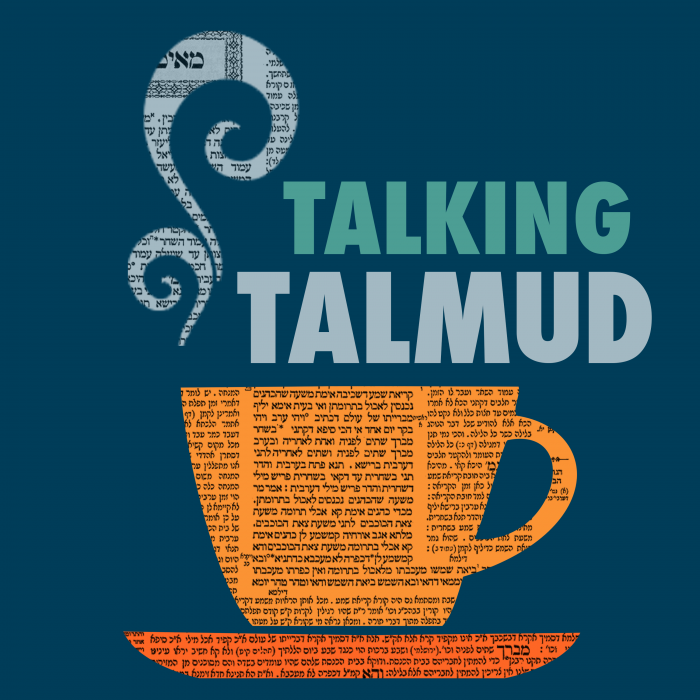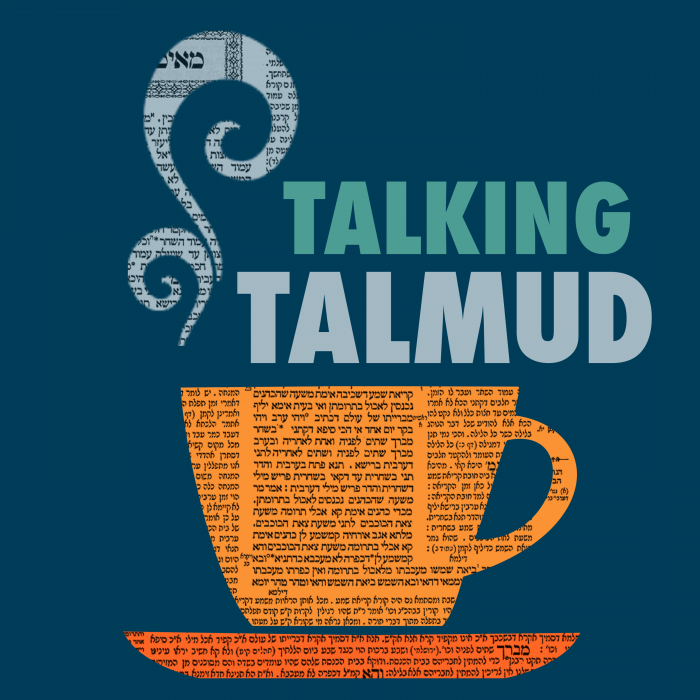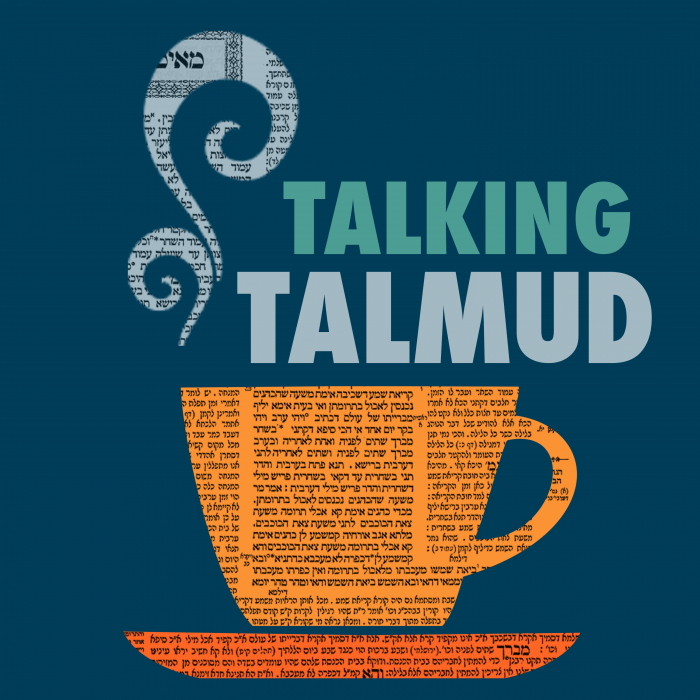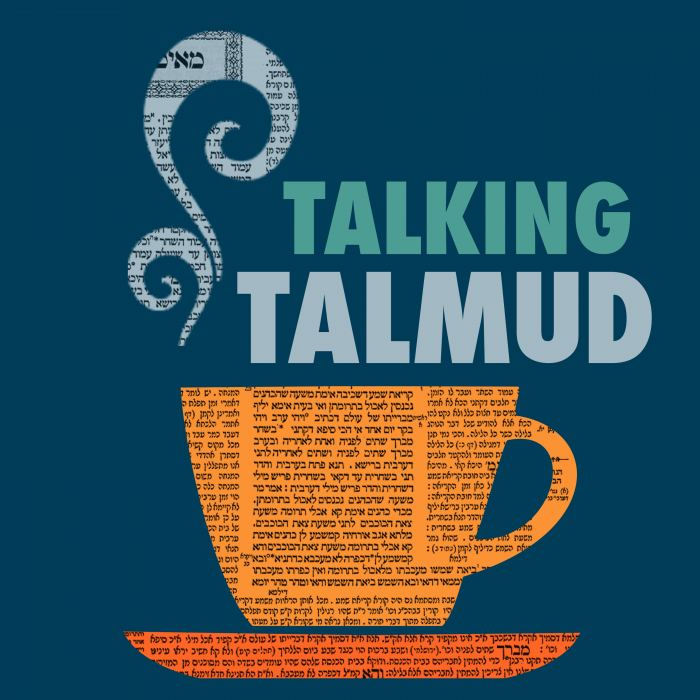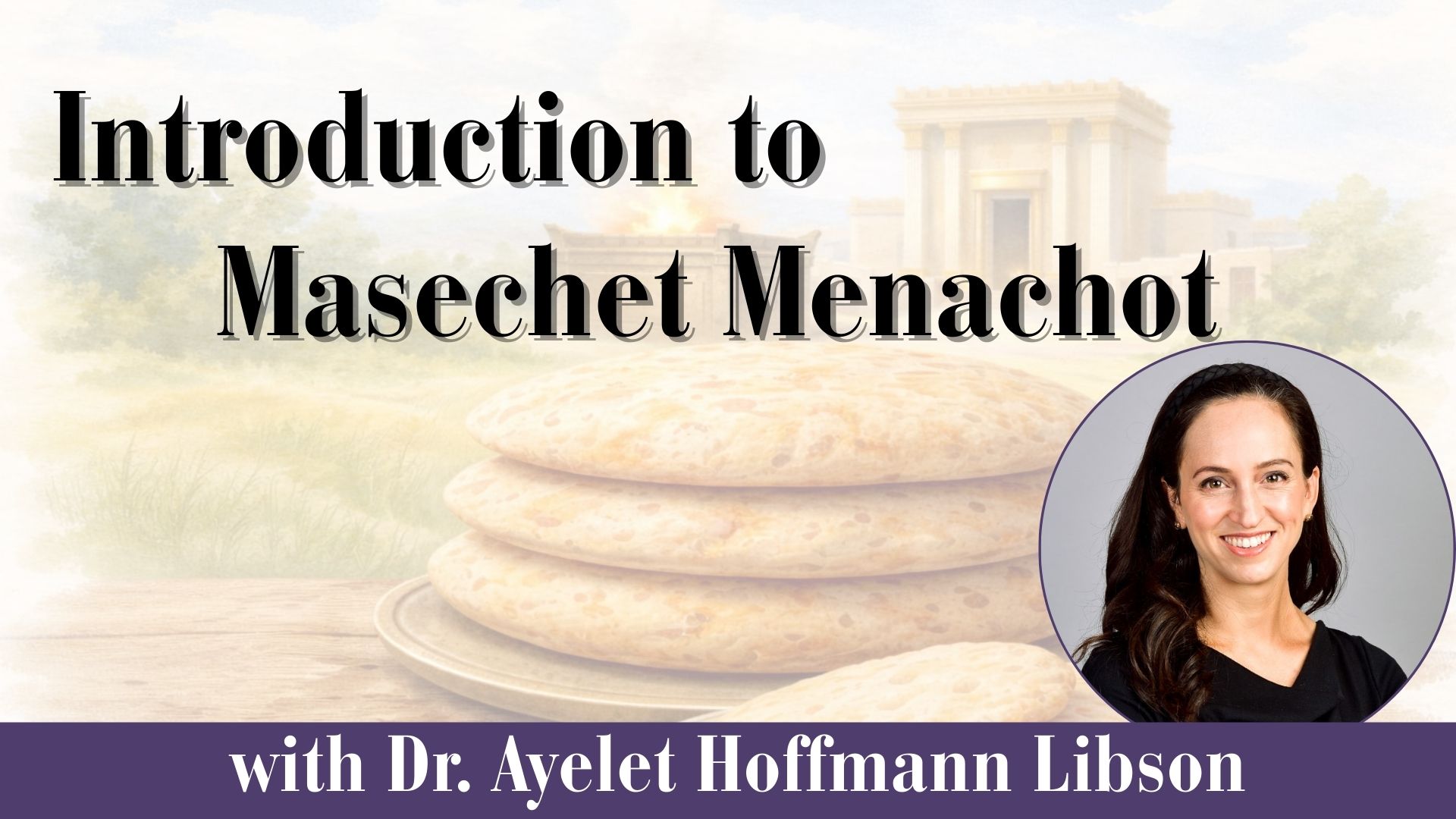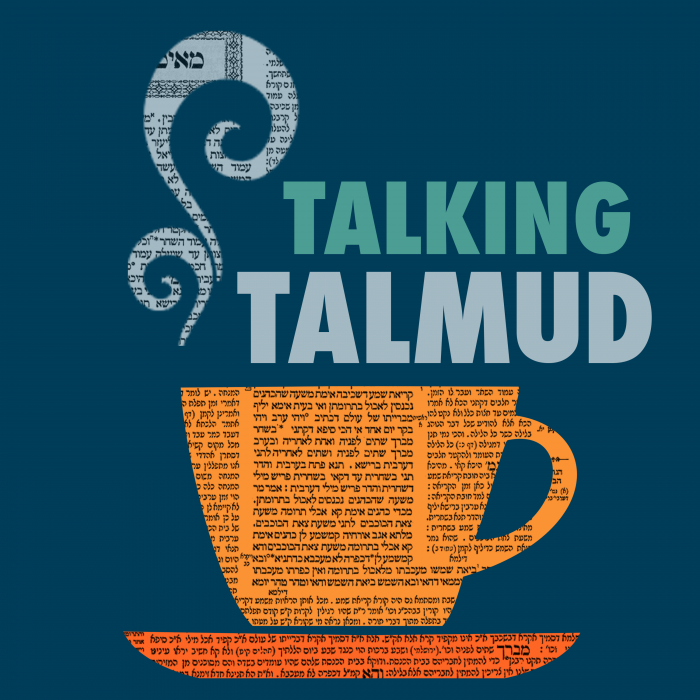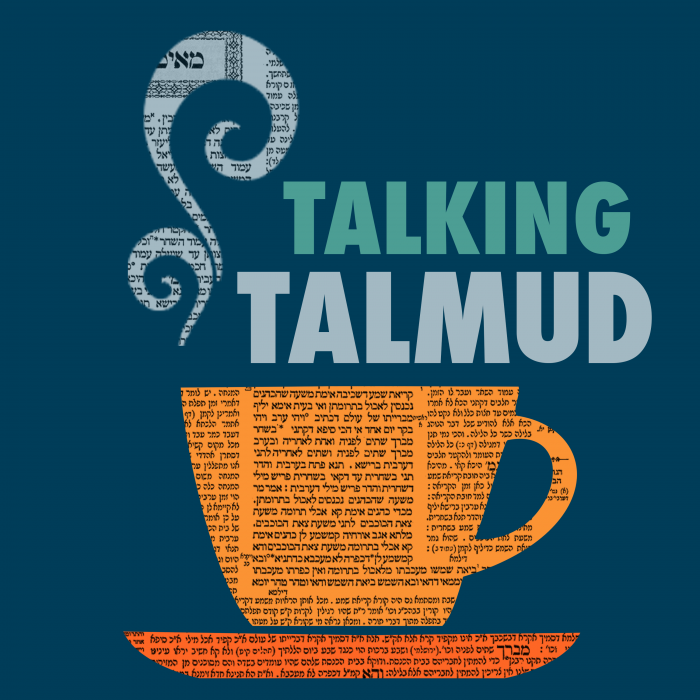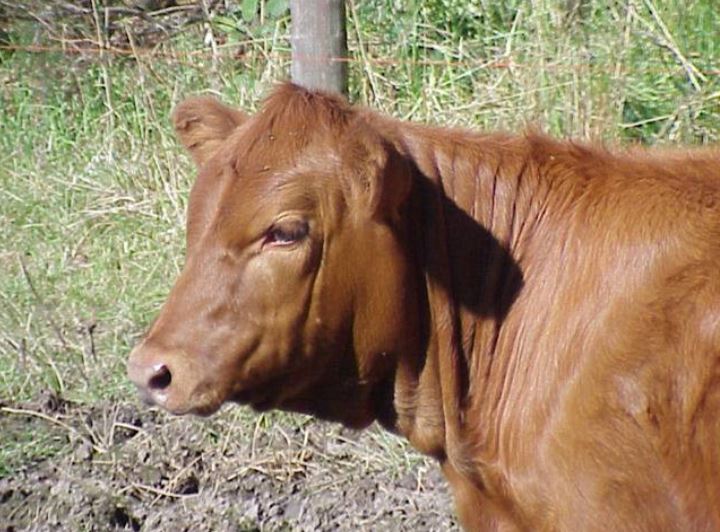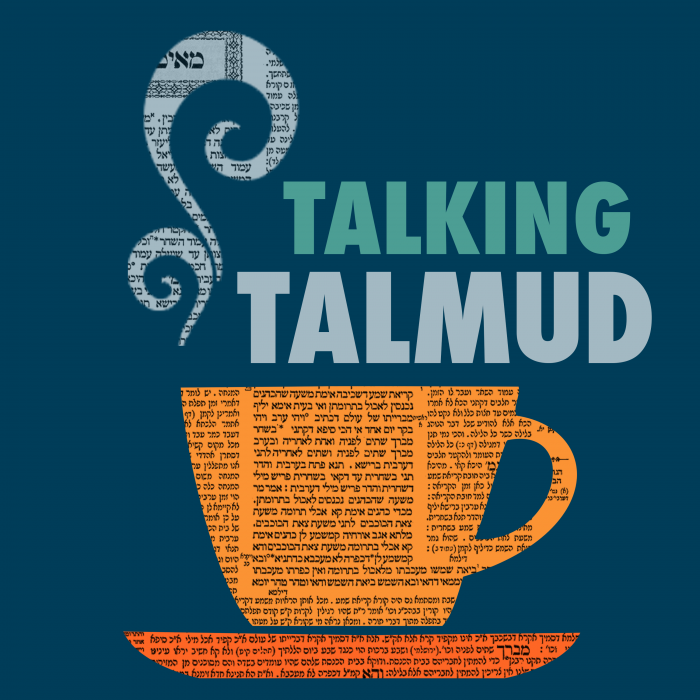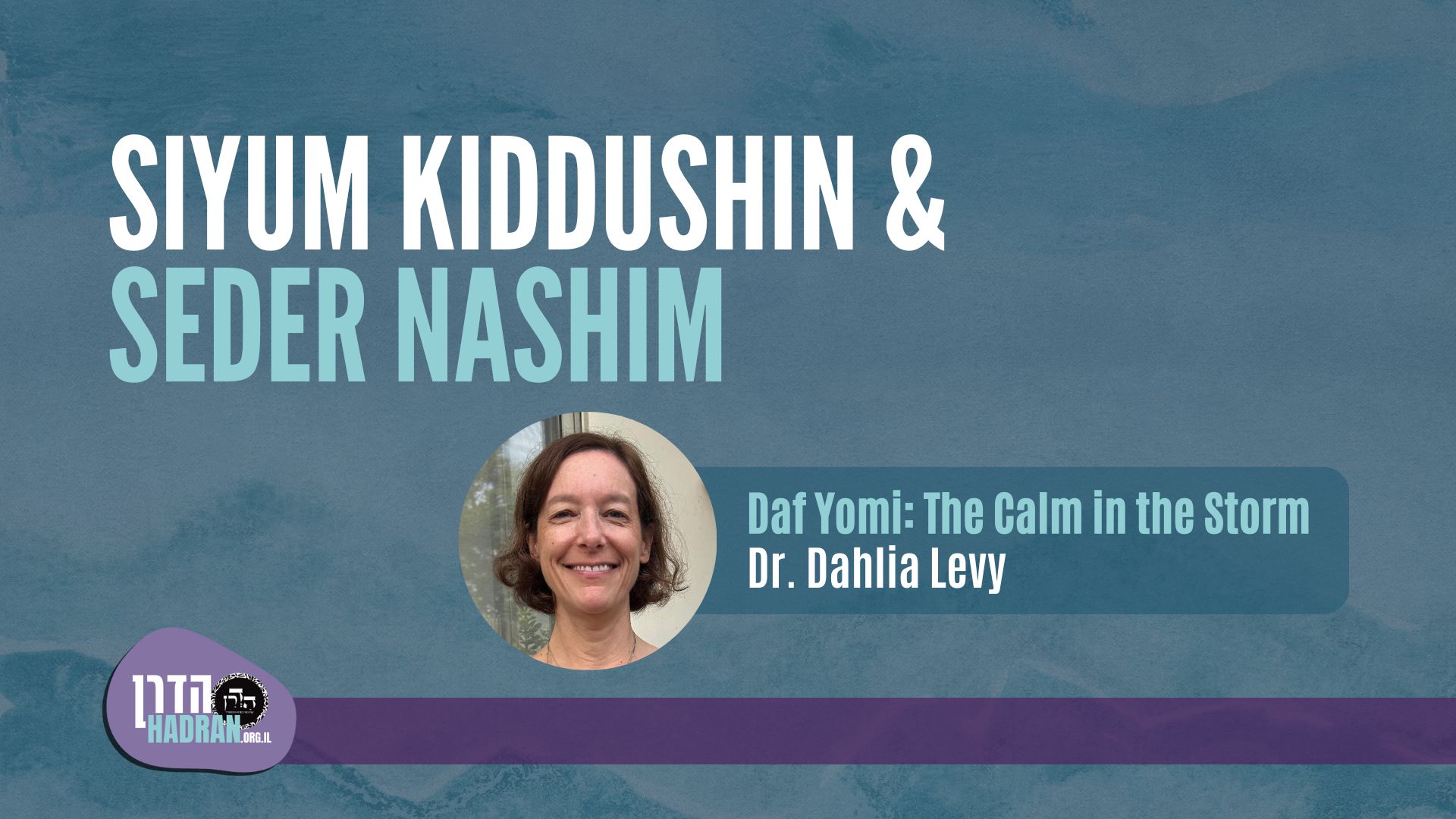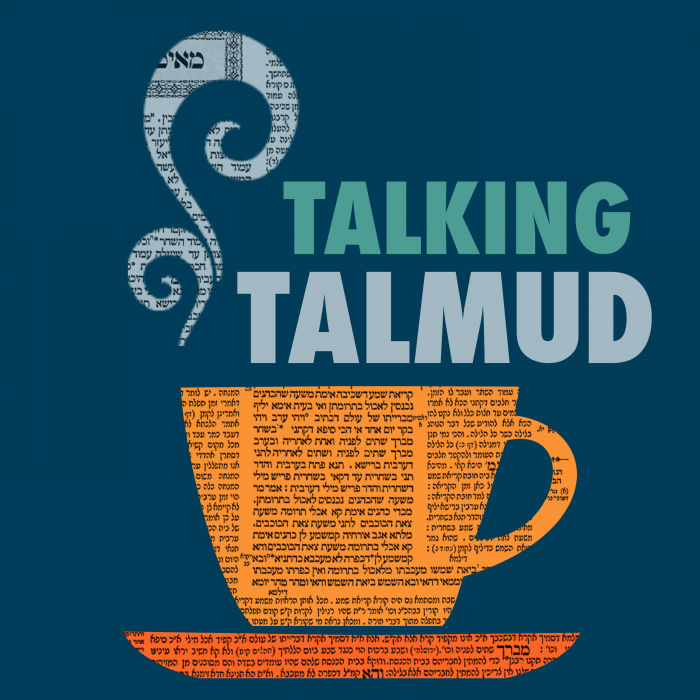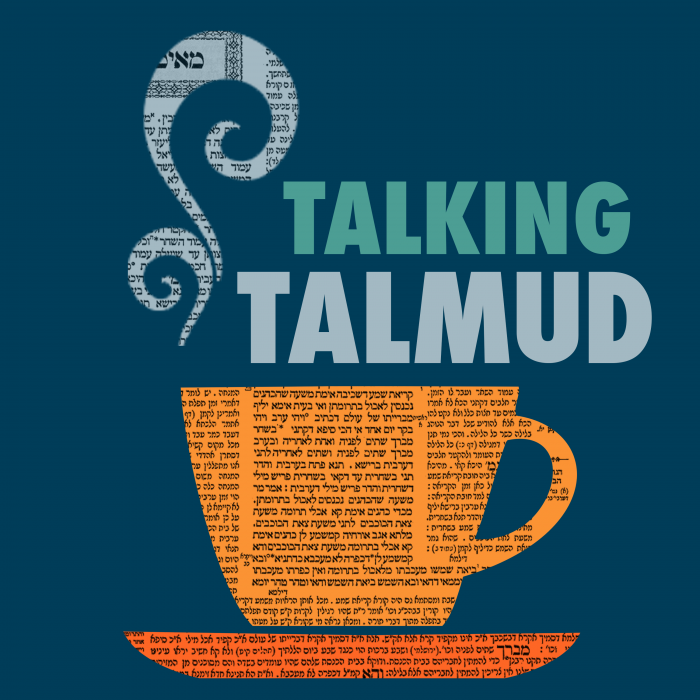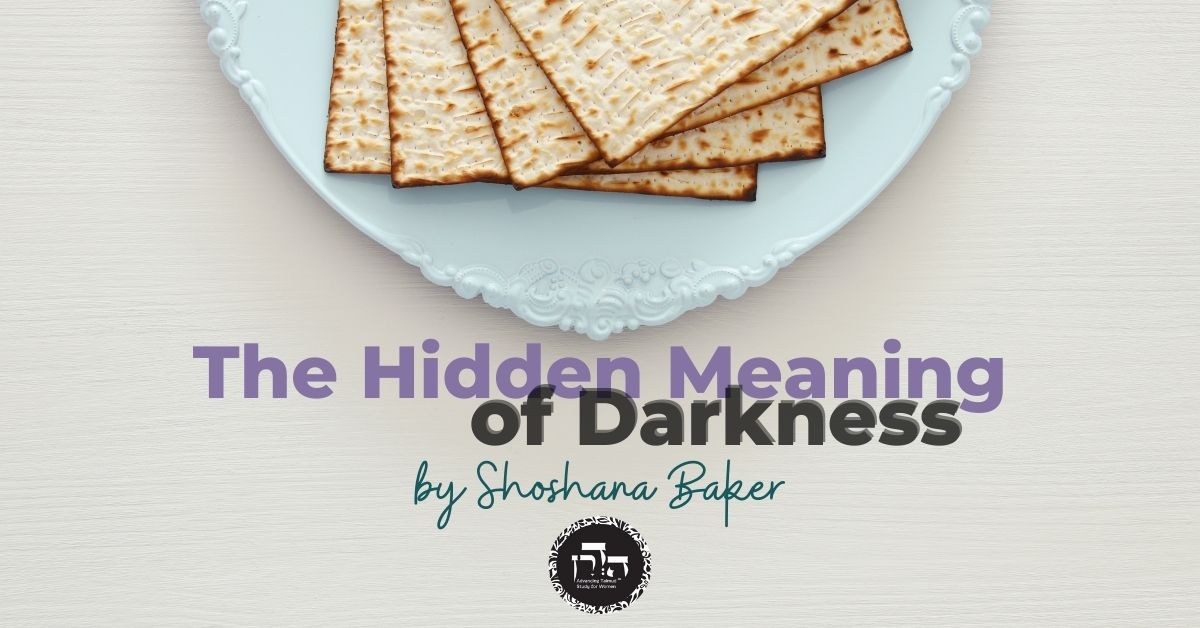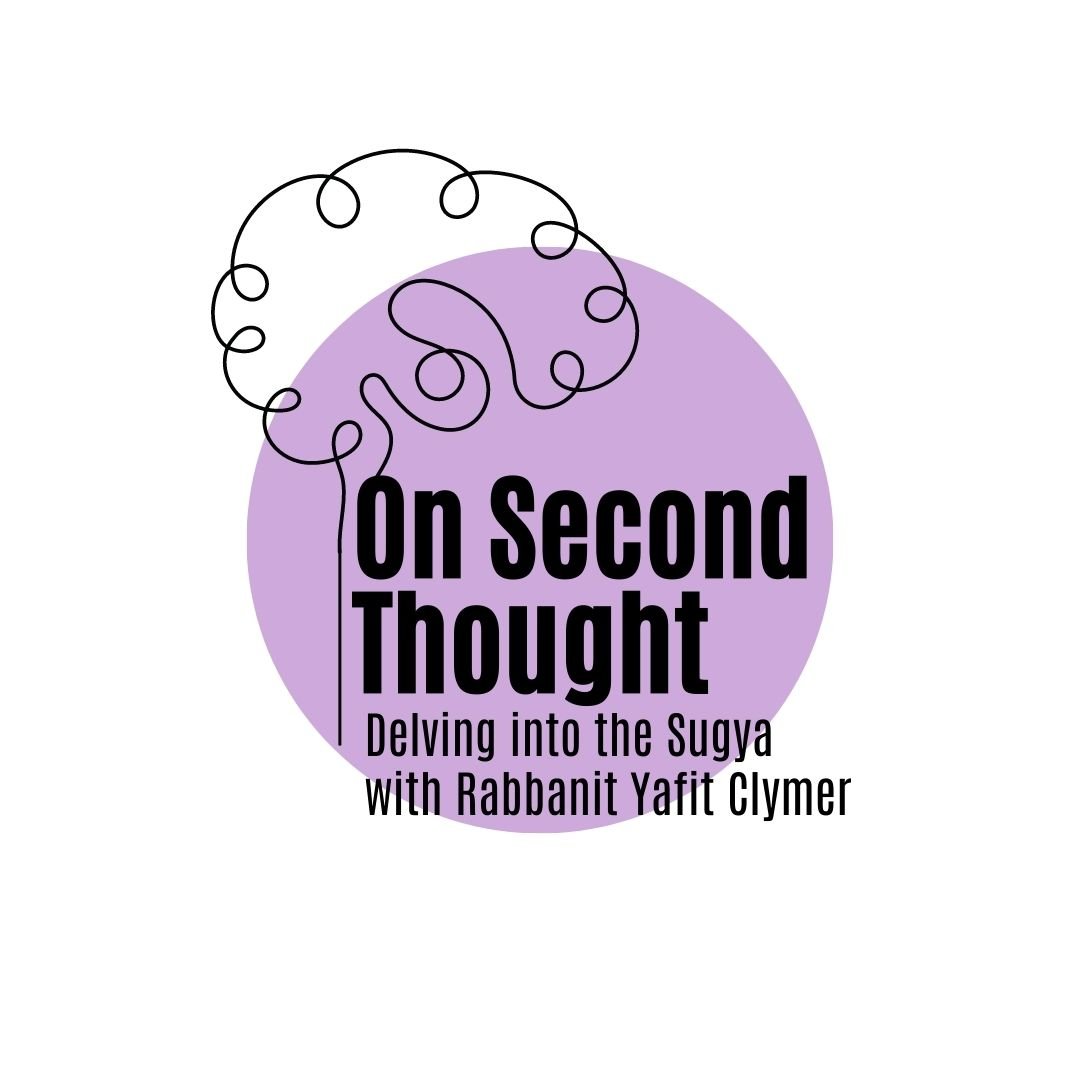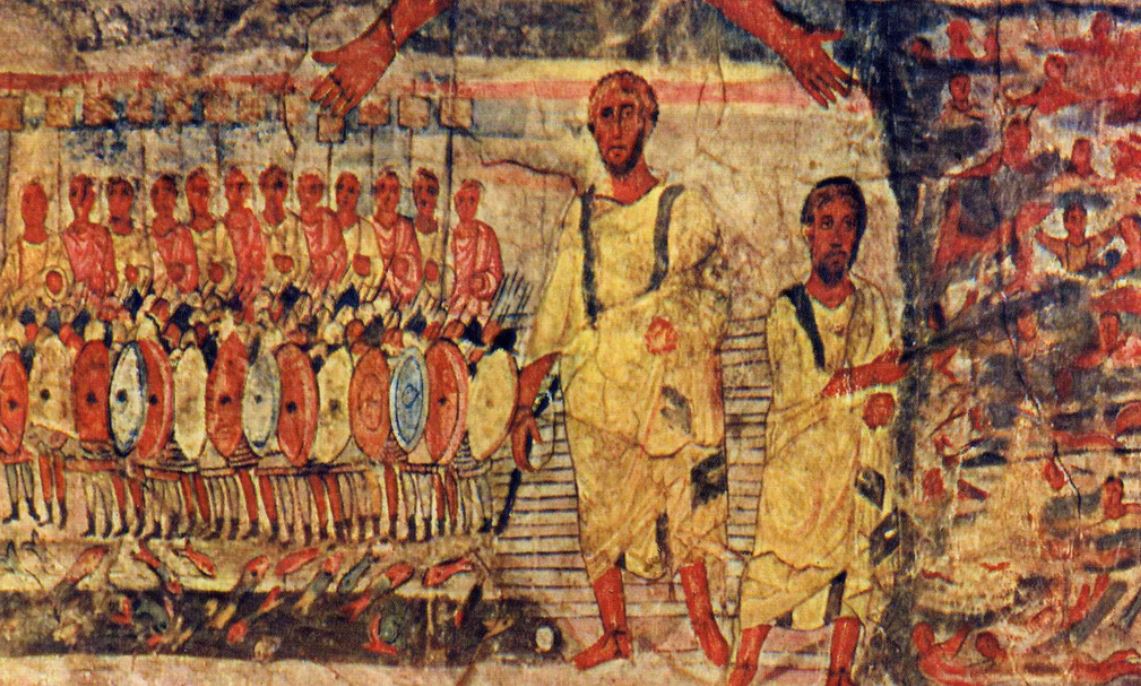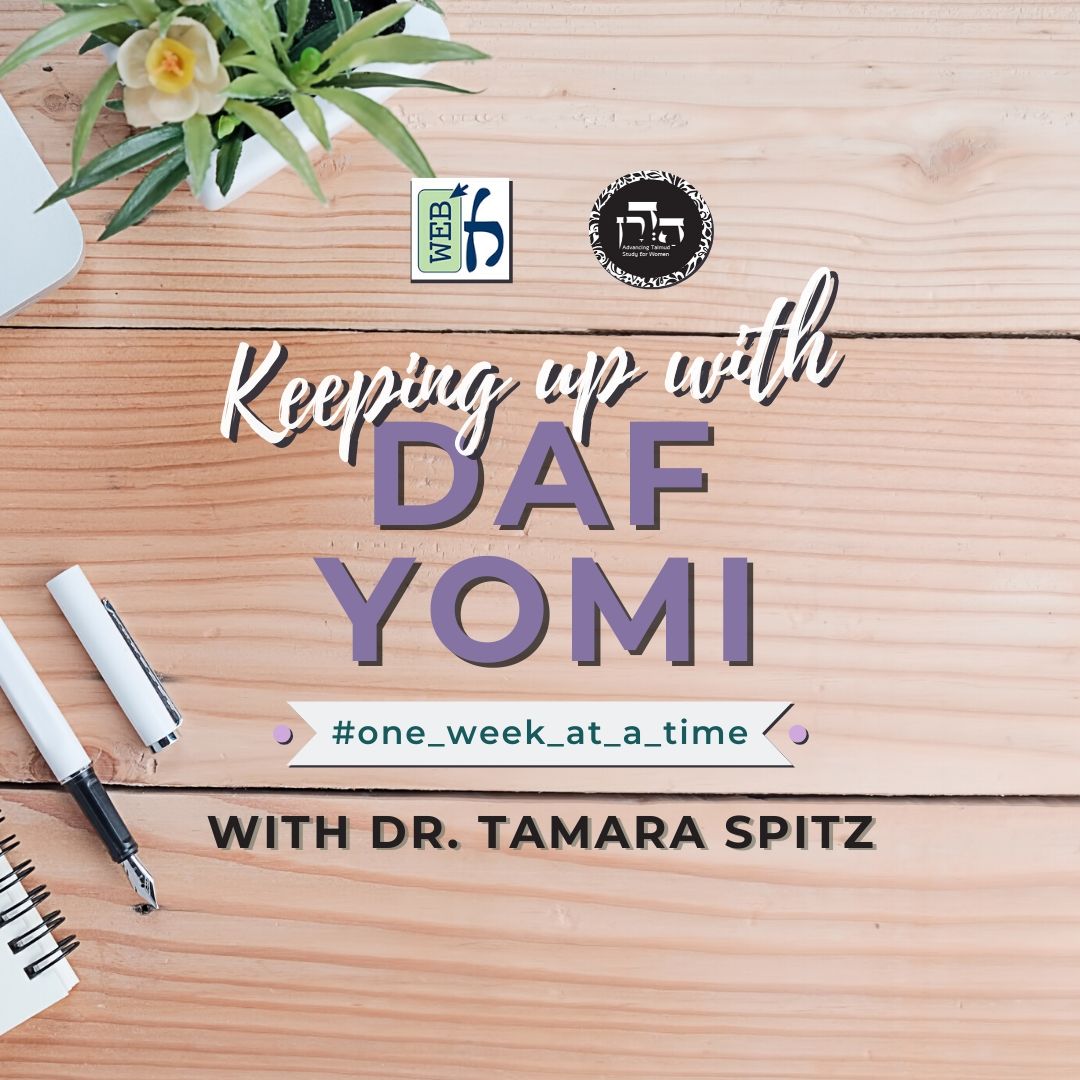Shmuel said one who acts unawares is exempt – three questions from sources are brought to contradict, including two from our mishna. In order to resolve one of the questions, Shmuel explain the case in the mishna differently – one intended one action but then forgot and went to do a different action but then accidentally ended up doing the first one. Also the debate between Rabbi Shimon and Rabbi Shimon Shezuri is explained in a few different ways. In light of Rava’s interpretation, a different braita is brought (regarding stoking coals on Shabbat) where Rava explains the issue to be the same as here – although others understand it differently. For what types of blood is one obligated with karet/sin offering? How is this derived from the verse in the Torah?
This week’s learning is sponsored for the merit and safety of Haymanut (Emuna) Kasau, who was 9 years old when she disappeared from her home in Tzfat two years ago, on the 16th of Adar, 5784 (February 25, 2024), and whose whereabouts remain unknown.
This week’s learning is dedicated of the safety of our nation, the soldiers and citizens of Israel, and for the liberation of the Iranian people. May we soon see the realization of “ליהודים היתה אורה ושמחה וששון ויקר”.
Want to dedicate learning? Get started here:


Today’s daily daf tools:
This week’s learning is sponsored for the merit and safety of Haymanut (Emuna) Kasau, who was 9 years old when she disappeared from her home in Tzfat two years ago, on the 16th of Adar, 5784 (February 25, 2024), and whose whereabouts remain unknown.
This week’s learning is dedicated of the safety of our nation, the soldiers and citizens of Israel, and for the liberation of the Iranian people. May we soon see the realization of “ליהודים היתה אורה ושמחה וששון ויקר”.
Today’s daily daf tools:
Delve Deeper
Broaden your understanding of the topics on this daf with classes and podcasts from top women Talmud scholars.
New to Talmud?
Check out our resources designed to help you navigate a page of Talmud – and study at the pace, level and style that fits you.
The Hadran Women’s Tapestry
Meet the diverse women learning Gemara at Hadran and hear their stories.
Keritot 20
מֵתִיב רַב אוֹשַׁעְיָא: רַבִּי שִׁמְעוֹן שֵׁזוּרִי וְרַבִּי שִׁמְעוֹן אוֹמְרִים: לֹא נֶחְלְקוּ עַל דָּבָר שֶׁהוּא מִשֵּׁם אֶחָד שֶׁהוּא חַיָּיב, אֶלָּא עַל דָּבָר שֶׁהוּא מִשּׁוּם שְׁנֵי שֵׁמוֹת, שֶׁרַבִּי אֱלִיעֶזֶר מְחַיֵּיב חַטָּאת, וְרַבִּי יְהוֹשֻׁעַ פּוֹטֵר.
Rav Oshaya raises an objection from the mishna to Shmuel’s opinion that all agree that one who acts unawares on Shabbat is exempt: Rabbi Shimon Shezuri and Rabbi Shimon say: Rabbi Eliezer and Rabbi Yehoshua did not disagree with regard to a case involving a matter where his lack of knowledge involves items from one category, as in that case they both agree he is liable. Rather, they disagree with regard to a case involving a matter where his lack of knowledge involves items from two categories, as in that case Rabbi Eliezer deems him liable to bring a sin offering, and Rabbi Yehoshua deems him exempt.
וְרַבִּי יְהוּדָה מַאי קָאָמַר דִּפְלִיגִי? בְּנִתְכַּוֵּין לְלַקֵּט עֲנָבִים וְלִקֵּט תְּאֵנִים, שְׁחוֹרוֹת וְלִקֵּט לְבָנוֹת – עֲנָבִים וּתְאֵנִים, שְׁחוֹרוֹת וּלְבָנוֹת, מַאי נִיהוּ? שְׁנֵי שֵׁמוֹת? הַיְינוּ רַבִּי שִׁמְעוֹן וְרַבִּי שִׁמְעוֹן שֵׁזוּרִי! רַבִּי יְהוּדָה מַאי אֲתָא לְאַשְׁמוֹעִינַן?
Rav Oshaya continues: And with regard to Rabbi Yehuda, about what matter is he saying that they disagree? If you say he maintains that they disagree in a case where one intended to pick grapes and he picked figs, or to pick black ones and he picked white ones, that is problematic. Rav Oshaya explains: Grapes and figs, black ones and white ones, what are they? Aren’t they two categories? If so, this is identical to the opinion of Rabbi Shimon and Rabbi Shimon Shezuri, who say that Rabbi Eliezer and Rabbi Yehoshua disagree specifically with regard to a mistake involving two categories. If so, what is Rabbi Yehuda coming to teach us?
אֶלָּא לָאו מִתְעַסֵּק אִיכָּא בֵּינַיְיהוּ, דְּרַבִּי יְהוּדָה סָבַר: מִתְעַסֵּק חַיָּיב, וְרַבִּי שִׁמְעוֹן שֵׁזוּרִי סָבְרִי: מִתְעַסֵּק פָּטוּר?
Rav Oshaya concludes: Rather, is it not correct to say that that the difference between them is the halakha concerning one who performs a transgression while acting unawares? As Rabbi Yehuda holds that one who acts unawares when committing a transgression is liable, and Rabbi Shimon and Rabbi Shimon Shezuri hold that one who acts unawares when committing a transgression is exempt. If so, the opinion of Rabbi Yehuda refutes Shmuel’s statement that all agree that one who acts unawares while performing a prohibited labor on Shabbat is exempt.
לָא, מִתְעַסֵּק – דִּבְרֵי הַכֹּל פָּטוּר, וְהָכָא בְּהָא קָא מִיפַּלְגִי, דְּרַבִּי שִׁמְעוֹן שֵׁזוּרִי סָבַר: שָׁכַח מְלַקֵּט מִלִּבּוֹ. בְּשֵׁם אֶחָד – דִּבְרֵי הַכֹּל חַיָּיב,
The Gemara answers: No, this is not a refutation. In fact, everyone agrees that one who acts unawares is exempt. The difference between the opinions involves a case where the picker lost his train of thought. He initially intended to pick one item, then he forgot and thought that he wanted a different item, and subsequently he unwittingly picked the item he had initially intended to pick. And here it is with regard to this matter that they disagree: As Rabbi Shimon Shezuri holds that when the picker forgot his initial train of thought and instead thought he wanted a different fruit, and both fruits are of one category, all agree he is liable if he ends up unwittingly picking the fruit he initially intended to pick.
כִּי פְּלִיגִי – בִּשְׁנֵי שֵׁמוֹת. רַבִּי יְהוּדָה סָבַר: לָא שְׁנָא בְּשֵׁם אֶחָד וְלָא שְׁנָא בִּשְׁנֵי שֵׁמוֹת – פְּלִיגִי.
When do Rabbi Eliezer and Rabbi Yehoshua disagree? They disagree with regard to a case involving two categories, i.e., when the picker forgot his initial thought and instead thought he required a fruit of a different category. By contrast, Rabbi Yehuda holds that there is no difference between a case of one category and a case of two categories: In both cases they disagree, as Rabbi Yehoshua rules he is exempt because his action did not follow his current intention. But in a case where one acts fully unawares, all agree he is exempt.
רָבָא אָמַר: לִיקְדֹּם אִיכָּא בֵינַיְיהוּ.
The Gemara cites another answer: Rava said that the difference between them is with regard to a case where one intended to perform two transgressions in a specific order and he mistakenly performed the second transgression first. According to Rabbi Shimon and Rabbi Shimon Shezuri, Rabbi Eliezer and Rabbi Yehoshua disagree with regard to a situation where one intended to pick two fruits of two different categories and he unwittingly picked them in the reverse order. In such a case Rabbi Yehoshua holds he is exempt. But when he intended to pick two pieces of fruit of the same category and he unwittingly reversed the order, Rabbi Yehoshua agrees he is liable. According to Rabbi Yehuda, whether the case involves one category or two categories, in both instances Rabbi Yehoshua holds that he is exempt.
וְהָתַנְיָא: הָיוּ לְפָנָיו שְׁתֵּי נֵרוֹת דּוֹלְקוֹת אֲרוּכּוֹת, וְנִתְכַּוֵּין לְכַבּוֹת אֶת זוֹ וְכִיבָּה אֶת זוֹ, לְהַדְלִיק אֶת זוֹ וְהִדְלִיק אֶת זוֹ – פָּטוּר. לְהַדְלִיק וּלְכַבּוֹת, וְכִיבָּה וְהִדְלִיק בִּנְשִׁימָה אַחַת – חַיָּיב.
With regard to Rava’s explanation, the Gemara cites a baraita that supports the claim that if one intended to perform two prohibited labors in one order and mistakenly reversed the order, he is exempt. And it is taught: If someone had before him two long candles that were lit, and he intended to extinguish this one and instead he extinguished that one, or if he intended to light this one and instead he lit that one, he is exempt. But in a case where he intended to light one and then extinguish the other, and instead he drew a breath and blew the flame from one candle to the other, as he accomplished his intention and extinguished one and lit the other, albeit with one breath, he is liable. This indicates that if he had not performed the two acts simultaneously, but in the reverse order, he is exempt.
פְּשִׁיטָא! מַהוּ דְּתֵימָא: לָא אִיתְעֲבִד מַחְשַׁבְתֵּיהּ, דְּהָא לְהַדְלִיק מֵעִיקָּרָא בָּעֵי וּלְבַסּוֹף לְכַבּוֹת, וְכִי עֲבַד מַעֲשֶׂה – כִּיבָּה וּבַסּוֹף הִדְלִיק הוּא, וְאֵימָא פָּטוּר, קָא מַשְׁמַע לַן: נְהִי דְּאַקְדּוֹמֵי נָמֵי לָא מַקְדֵּים, אַחוֹרֵי נָמֵי לָא מְאַחַר.
With regard to the last ruling, the Gemara asks: Isn’t this obvious? Since he accomplished his act as he had intended, he is clearly liable. The Gemara answers that the ruling is necessary, lest you say: He did not actually perform the labors in accordance with his thought, as he wanted to light one initially and ultimately to extinguish the other, but when he performed the action, it might be considered as though he first extinguished one and ultimately lit the other. And therefore one might say he is exempt. Consequently, the baraita teaches us that although he did not perform the lighting first, as he had intended, nevertheless he also did not perform the lighting after the extinguishing, as they occurred simultaneously. Since his action did not entirely contradict his intention, he is liable.
תָּנוּ רַבָּנַן: הַחוֹתֶה גֶּחָלִים בַּשַּׁבָּת – חַיָּיב חַטָּאת. רַבִּי שִׁמְעוֹן בֶּן אֶלְעָזָר אוֹמֵר מִשּׁוּם רַבִּי אֱלִיעֶזֶר בְּרַבִּי צָדוֹק: חַיָּיב שְׁתַּיִם, מִפְּנֵי שֶׁהוּא מְכַבֶּה אֶת הָעֶלְיוֹנוֹת, וּמַבְעִיר אֶת הַתַּחְתּוֹנוֹת. בְּמַאי עָסְקִינַן? אִי דְּקָא מִיכַּוֵּין לְכַבּוֹת וּלְהַבְעִיר – מַאי טַעְמָא דְּמַאן דְּפָטַר? אֶלָּא דְּלָא קָא מִכַּוֵּין לְהַבְעִיר – מַאי טַעְמָא דְּמַאן דִּמְחַיֵּיב תַּרְתֵּי?
§ The Sages taught in a baraita: One who stokes coals on Shabbat is liable to bring a sin offering. Rabbi Shimon ben Elazar says in the name of Rabbi Eliezer, son of Rabbi Tzadok: He is liable to bring two sin offerings, because he extinguishes the upper coals that are moved to the bottom, due to lack of oxygen, and he ignites the bottom coals as he moves them to the top. The Gemara asks: What are we dealing with here? If it is a case where he intends to extinguish and kindle, what is the reason of the one who exempts him? Rather, it must be that he does not intend to kindle, but only to extinguish. If so, what is the reason of the one who deems him liable to bring two sin offerings?
רַבִּי אֶלְעָזָר וְרַבִּי חֲנִינָא דְּאָמְרִי תַּרְוַויְיהוּ: כְּגוֹן שֶׁנִּתְכַּוֵּין לְכַבּוֹת הָעֶלְיוֹנוֹת כְּדֵי לְהַבְעִיר אֶת הַתַּחְתּוֹנוֹת, דְּתַנָּא קַמָּא קָסָבַר: מְקַלְקֵל בְּהַבְעָרָה פָּטוּר, וְרַבִּי אֱלִיעֶזֶר בְּרַבִּי צָדוֹק אָמַר: חַיָּיב. וְכֵן אָמַר רַבִּי יוֹחָנָן: בְּנַפָּח שָׁנוּ. אָמַר רַבִּי יוֹחָנָן: עַד כָּאן לֹא נִתְגַּלְּתָה טַעְמָהּ שֶׁל הֲלָכָה זוֹ.
Rabbi Elazar and Rabbi Ḥanina both say in explanation: The baraita is referring to a case where a blacksmith needed the coals on top and he therefore intended to extinguish the upper coals, and in order to do that he knew he would ignite the bottom ones. The tanna’im disagree with regard to an undesired act of kindling on Shabbat, which is tantamount to a destructive act. As, the first tanna holds that one who produces an undesired or destructive outcome when he performs the labor of kindling is exempt, and Rabbi Eliezer, son of Rabbi Tzadok, says he is liable. And similarly, Rabbi Yoḥanan says: That disagreement was taught with regard to the case of a blacksmith. And Rabbi Yoḥanan says: Until it was taught that the case involves a blacksmith, the reason for this halakha was not revealed.
אַמֵּי בַּר אָבִין וְרַב חֲנַנְיָא בַּר אָבִין דְּאָמְרִי תַּרְוַויְיהוּ:
Ami bar Avin and Rav Ḥananya bar Avin both say another explanation:
כְּגוֹן שֶׁנִּתְכַּוֵּין לְכַבּוֹת וּלְהַבְעִיר, דְּתַנָּא קַמָּא סָבַר לַהּ כְּרַבִּי יוֹסֵי, דְּאָמַר: הַבְעָרָה לְלָאו יָצָאת,
This is referring to a case where he intended both to extinguish and to kindle. The Torah singles out the labor of kindling on Shabbat, as it is written: “You shall not kindle fire in all your dwelling places on the day of Shabbat” (Exodus 35:3). The Sages disagree with regard to the interpretation of this verse. As the first tanna holds in accordance with the opinion of Rabbi Yosei, who says: Kindling was singled out from the general category of prohibited labors in order to teach that it is unlike other labors, teaching that it is a regular prohibition, i.e., it is punishable only with lashes and does not entail karet or stoning for an intentional transgression, or a sin offering for an unwitting transgression. Consequently, he is not liable to bring a sin offering for the kindling.
וְרַבִּי אֱלִיעֶזֶר בְּרַבִּי צָדוֹק סָבַר לַהּ כְּרַבִּי נָתָן, דְּאָמַר: הַבְעָרָה לְחַלֵּק יָצָאת.
And Rabbi Eliezer, son of Rabbi Tzadok, holds in accordance with the opinion of Rabbi Natan, who says: Kindling was singled out in the Torah to divide the various primary categories of labor and to establish liability for the performance of each of them. According to this opinion, the prescribed punishments for kindling are the same as for the rest of the prohibited labors.
רָבָא אָמַר: לְהַקְדִּים אִיכָּא בֵינַיְיהוּ.
Rava said yet another explanation of the disagreement in the baraita: The difference between them involves a case where one intended to ignite the lower coals and subsequently extinguish the upper coals, and instead he extinguished the upper ones and ignited the lower ones simultaneously. Since he performed the extinguishing first and did not perform it after he ignited as he had intended, the first tanna rules he is liable to bring only one sin offering. By contrast, Rabbi Eliezer, son of Rabbi Tzadok, maintains there is no exemption for performing the prohibited labors in a different sequence than intended.
רַב אָשֵׁי אָמַר: כְּגוֹן שֶׁנִּתְכַּוֵּין לְכַבּוֹת וְהוּבְעֲרוּ מֵאֵילֵיהֶן, וְתַנָּא קַמָּא סָבַר לַהּ כְּרַבִּי שִׁמְעוֹן, דְּאָמַר: דָּבָר שֶׁאֵין מִתְכַּוֵּין – פָּטוּר, וְרַבִּי אֱלִיעֶזֶר בְּרַבִּי צָדוֹק סָבַר לַהּ כְּרַבִּי יְהוּדָה, דְּאָמַר: דָּבָר שֶׁאֵין מִתְכַּוֵּין – חַיָּיב.
Rav Ashi said another explanation: The baraita is referring to a case where he intended to extinguish a flame and he was not aware that the bottom coals would be kindled. Rather, they ignited by themselves, as he moved aside and extinguished the upper coals. And the first tanna holds in accordance with the opinion of Rabbi Shimon, who says: If one commits an unintentional act, an action from which an unintended prohibited result ensues on Shabbat, as he did not intend to perform a prohibited labor, he is exempt. And Rabbi Eliezer, son of Rabbi Tzadok, holds in accordance with the opinion of Rabbi Yehuda, who says: One who commits an unintentional act from which a prohibited labor inadvertently results is liable.
תָּנוּ רַבָּנַן: הַחוֹתֶה גֶּחָלִים בְּשַׁבָּת לְהִתְחַמֵּם בָּהֶם וְהוּבְעֲרוּ מֵאֵילֵיהֶן – תָּנֵי חֲדָא: חַיָּיב, וְתָנֵי אִידַּךְ: פָּטוּר. הָדְתַנְיָא: חַיָּיב, קָסָבַר: מְלָאכָה שֶׁאֵינָהּ צְרִיכָה לְגוּפָהּ – חַיָּיב עָלֶיהָ. וְהָא דִּתְנָא: פָּטוּר, קָסָבַר: מְלָאכָה שֶׁאֵינָהּ צְרִיכָה לְגוּפָהּ פָּטוּר עָלֶיהָ.
The Sages taught in a baraita: Concerning one who stokes coals on Shabbat with the intention to move them in order to be warmed by them, and they ignited by themselves; it is taught in one baraita that he is liable and it is taught in another baraita that he is exempt. The Gemara explains: The reason for that which is taught in the first baraita, i.e., that he is liable, is that this tanna holds that one who performs a labor on Shabbat that is not necessary for its own sake, i.e., he performs the labor for a purpose other than the direct result of the action, is held liable for it. And the reason for that which is taught in the second baraita, i.e., that he is exempt, is that he holds that one who performs a labor that is not necessary for its own sake is exempt from liability for it.
הֲדַרַן עֲלָךְ סָפֵק אָכַל חֵלֶב
מַתְנִי׳ אָכַל דַּם שְׁחִיטָה, בַּבְּהֵמָה בְּחַיָּה וּבָעוֹף, בֵּין טְמֵאִין בֵּין טְהוֹרִין, דַּם נְחִירָה, דַּם עִיקּוּר, דַּם הַקָּזָה שֶׁהַנְּשָׁמָה יוֹצְאָה בּוֹ – חַיָּיבִין עָלָיו.
MISHNA: If one consumed an olive-bulk of blood that spurted during the slaughter of a domesticated animal, an undomesticated animal, or a bird, whether it is a kosher or non-kosher species; or if one consumed blood that flowed after stabbing an animal or killing it in a manner other than by ritual slaughter, or blood that spurted after ripping the animal’s windpipe or gullet, or blood that spurted during bloodletting with which the soul departs, one is liable to receive karet for consuming it intentionally or to bring a sin offering for consuming it unwittingly.
דַּם הַטְּחוֹל, דַּם הַלֵּב, דַּם בֵּיצִים, דַּם חֲגָבִים, דַּם הַתַּמְצִית – אֵין חַיָּיבִין עָלָיו, רַבִּי יְהוּדָה מְחַיֵּיב בְּדַם הַתַּמְצִית.
But with regard to blood of the spleen, blood of the heart, blood of eggs, blood of grasshoppers, or blood of exudate [tamtzit], i.e., that oozes from the neck of the animal after the initial spurt of its slaughter concludes,one is not liable for consuming it. Rabbi Yehuda deems one liable in the case of blood of exudate.
גְּמָ׳ תָּנוּ רַבָּנַן: ״כָּל דָּם לֹא תֹאכְלוּ״, שׁוֹמֵעַ אֲנִי אֲפִילּוּ דַּם מְהַלְּכֵי שְׁתַּיִם, דַּם בֵּיצִים, דַּם חֲגָבִים, דַּם דָּגִים, הַכֹּל בַּכְּלָל? תַּלְמוּד לוֹמַר: ״לְעוֹף וְלִבְהֵמָה״,
GEMARA: The Sages taught in a baraita: The verse states: “And you shall consume no manner of blood” (Leviticus 7:26). I would derive from here that even with regard to the blood of bipeds, i.e., human beings, and the blood of eggs, the blood of grasshoppers, and the blood of fish, all these are included in the prohibition against consuming blood. Therefore, the verse states: “Whether it is of bird or of animal” (Leviticus 7:26).
מָה עוֹף וּבְהֵמָה מְיוּחָדִין, שֶׁיֵּשׁ בָּהֶן טוּמְאָה קַלָּה וְטוּמְאָה חֲמוּרָה, וְיֵשׁ בָּהֶן אִיסּוּר וְהֶיתֵּר, וְהֵן מִין בָּשָׂר – אַף כֹּל שֶׁיֵּשׁ בָּהֶן טוּמְאָה קַלָּה.
The baraita explains the derivation from the verse: Just as birds and animals are unique in that they have the capacity for both a light form of ritual impurity, if they become impure after they are slaughtered, in which case they are considered impure food, and a severe form of impurity, if they die without valid ritual slaughter, and they have the possibility of being forbidden or permitted, and they are a type of meat, so too, everything that has the capacity for both a light form of impurity and a severe form of ritual impurity, and has the possibility of being forbidden or permitted, and is a type of meat, is included in the prohibition.
אוֹצִיא דַּם מְהַלְּכֵי שְׁתַּיִם – שֶׁיֵּשׁ בָּהֶן טוּמְאָה חֲמוּרָה, וְאֵין בָּהֶן טוּמְאָה קַלָּה.
I will therefore exclude the blood of bipeds, as they have the capacity for a severe form of ritual impurity, i.e., the impurity of a corpse, but they do not have the capacity for a light form of ritual impurity, since the halakhot of the impurity of food do not apply to the human body.


